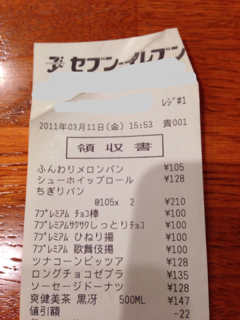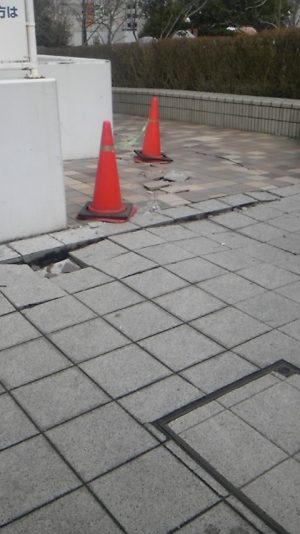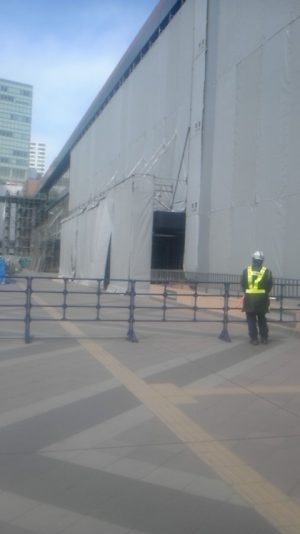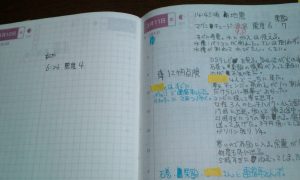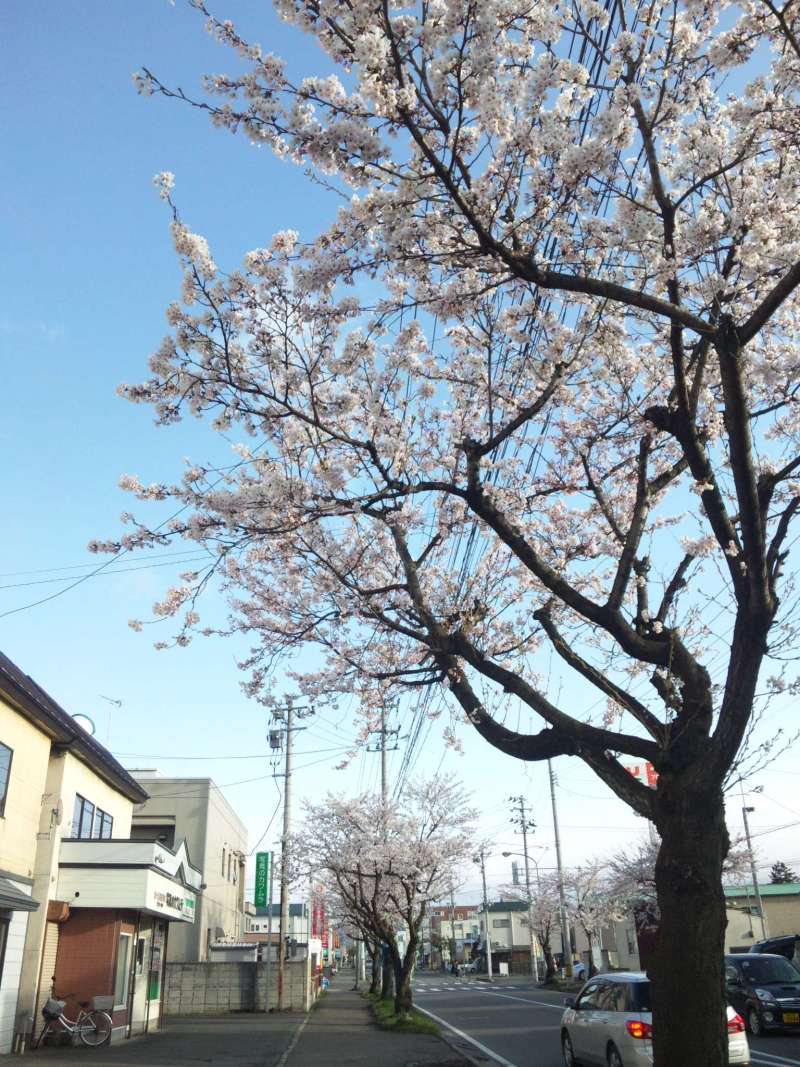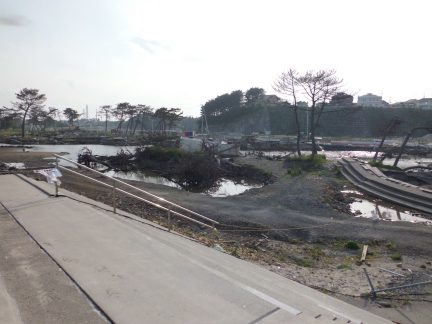A New Perspective Gained from Disaster
Written by: Iru
Born and raised in Miyagi Prefecture, living in the inland area of Sendai
More lesbian than bisexual, more versatile than bottom, more neutral than female
Indecisive about everything but enjoying being a sexual minority.
Utilizing skills as a vocalist in their musical endeavors, and thinking about how to make society aware of minorities.
Preface
Although I was a victim of disaster, I was a very blessed victim. In fact, because my same-sex partner had a terrible experience, I was hesitant about writing a memoir, but no matter the painful experience, by changing one’s perspective one can also change how one feels.
My name contains the character “幸” (fortune), which is only one stroke different from “辛” (painful, harsh); I think that these two ideas are like two sides of the same coin.
That is why I thought to write about my own experiences in an entertaining way.
The day of March 11. I was bathing with my family at an onsen.
“Ayaaaaa… Aya-aya!”
For people from Sendai or Tohoku, I’m sure you understand this dialect. This person was not calling out to a woman named “Aya.” The radio was not broken. Our family’s fluffhead Bappa (grandmother) called out this phrase as the earthquake’s tremors hit.
On the day of March 11, I was using my day off work to go on a day trip to the onsen located in the inland area of the prefecture with my mother, grandmother, and grandfather.
After washing my body and warming up, I went to my favorite spot: the reclining bath corner. I lay down next to Bappa stark naked, and as I happily gazed at a mother and her baby lying beside me, the earthquake struck.
“Ayaaaaa… Aya-aya! It’s a loooong one. It’s really shaking…”
As Bappa was murmuring this in a leisurely manner, the mother beside me scooped up her baby and turned tail. Meanwhile, worried that the roof over the reclining bath corner could collapse at any moment, I threw myself on top of Bappa. I don’t know how long the shaking lasted, but to me it felt like five minutes.
Thankfully, the roof did not collapse, and before the tremors had even subsided a middle aged woman who worked at the onsen came to our aid.
“Please get dressed and exit quickly,” she said.
Even though she herself was in danger, I thought she must be like Anpanman to be able to worry about others.
Perhaps Bappa was weak in the knees, but she was not able to stand on her own. Taking Anpanman’s hand she was able to make it to the change room, where we got dressed in shorts and undershirts. My mother hurried in to find us with our wet hair and odd outfits. At that moment my mother’s eyes looked like they would be drawn with spirals if this had been a comic book, so shaken did she seem.
I still have no memory of how we opened the lockers and got changed. The ceiling in the break room had collapsed and other customers were taking pictures with their cell phones. Thinking that this was a momentous occasion to be photographed, I was swept up in the moment and took a picture as well.
Bappa, who had gone on ahead, came back on wobbly legs saying “I can’t find Jicchi (my grandfather).” The shaking had since stopped, but the ceiling had fallen in, so I told her to go ahead outside as I headed to the men’s bath to look for Jicchi.
Luckily a male staff member was making towards the men’s bath at that moment. I asked him to call out Jicchi’s name, and upon doing so a cheerful response could be heard from the change room. Like a faithful companion, Bappa was waiting for Jicchi inside the building, and my mother had considerately gotten everyone’s shoes ready for us to go outside.
Outside, the traffic lights were dark and the situation was clearly out of the norm. Jicchi seemed to have become nauseous from the quake, but no one had been injured so I sent a text to their eldest son, An-chan, telling him they were fine.
At the same time I received a message from a sort-of partner, who I may or may not have been dating, asking if I was okay. I sent a reply and thereafter I was not able to get in touch for several days.
March 11, 2011, 2:58 PM
ceiling in the break area of a day onsen
After the lifelines were cut off, we survived the ordeal together.
As I wrote before, Bappa is a bit of a fluffhead. How bad is it, you ask? One time she went to the kitchen corner of a home improvement center and said she was looking for a utensil for scooping up tofu even as she pointed at an eggbeater.
She’s a fluffhead, but she’s not demented.
However, our Bappa is a dependable woman when the time comes. She called out to me, “Go buy some water!” realizing before any of us that we would be without running water. Upon arriving at the local convenience store, I saw that even though items had fallen everywhere the place was still full of customers.
11, 2011, 3:38 PM
scene at the local convenience store, one hour after the earthquake
11, 2011, 3:53 PM
still keep the receipt from the convenience store I visited one hour after the earthquake
That night I brought my pet bird to Bappa’s house, and Jicchi gathered the tenants from the apartment building he was landlord of, making for a group of 11 people in all. When it came time to sleep, I was more troubled by my fear of men than by being a member of a sexual minority. Six of the eleven people in our group were men. No matter which way I turned, there was a man. It was like a pageant of Christmas lights. And I was supposed to sleep here!
It is unlikely that anyone would have the gall to sexually harass me in such a situation, but I just couldn’t bear the thought. Thinking to make things at least a bit more bearable, I lay down between my trusty younger brother and the wall, but I don’t think I managed to sleep much at all.
The next day we began gathering information about food supplies and lining up to draw water. All lifelines had been cut off, but thankfully the waterworks truck came to the nearby elementary school regularly to supply everyone with water. We also had a gas stovetop, and on the third day Jicchi remembered that their house was supplied with propane gas, which we could use freely. Before long the power came back on, too.
Until that point, we had been living by candlelight. Bappa’s technique for making candle sticks was so simple that I’d like to share it here:
□How to make a candle stick:
1. Cut a daikon radish or other vegetable into slices.
2. Insert a toothpick halfway into the bottom of a candle then insert the other half into the vegetable.
3. Your candle stick is done.
It’s a simpler way than sticking the candle to a surface with dripped wax, and it doesn’t fall over as easily.
Try it out in the summer when using fireworks.
March 11, 2011, 5:56 PM
Lighting candles on Bappa’s handmade candle stick in front of my pet bird
I was a disaster victim, but I think that I was incredibly blessed. Simply cooking rice in an earthenware pot and sprinkling flavoring on it made for a delicious meal. When I went out looking for food and lines of people (going through a line-up outside a store yielded a very high chance of finding food or something useful), I was even able to buy An-chan’s favorite shochu.
While Jicchi was staying at home, a fish vendor came by to sell off his sushi toppings cheaply, and Jicchi happily bought some and shared it with the rest of the family. Jicchi and Bappa were unable to say “saamon” (Japanese for salmon) and pronounced it “samon” instead.
Thanks to our propane supply, once the water started running again we were able to bathe consistently.
Mysterious things also happened. At the time, An-chan was working at the town hall, and although I sent him a text on the day of the earthquake saying that Jicchi and Bappa were okay, I didn’t receive a reply. I was not concerned, thinking that town hall was far too busy at the moment for him to be texting me. I asked him about it when he got home two days after the earthquake. He said that he hadn’t sent a reply because he thought my text was a reply to the text he had sent before my text. In other words, he had texted me before I sent a message that Jicchi and Bappa were okay.
Apparently his text was along the lines of “Are you okay?” but I have yet to receive it even now. But because I told him that Jicchi and Bappa were okay, even though I hadn’t seen his message, An-chan was relieved and able to concentrate fully on his work.
One must not think of everything in a negative light. I would rather look forward and do what I can.
The earthquake and tsunami caused a lot of damage. Although our family may have seemed carefree, our family grave erected at a seaside temple was washed away, and our relatives’ newly built house was completely demolished. Some of the people I had known as far back as my school days had even lost their lives.
But I still thought that one mustn’t think of everything negatively. Perhaps the people who lost their lives in the tsunami were shining brightly in the sky on the night of the disaster, but the star-filled sky was more brilliant than usual in Sendai. My mother, who never takes more than two days off work at a time and was looking overworked, was able to rest for about one month when her workplace went under water.
Most of all, I gained new perspective. I am alive right now, and although tragic things may happen which make me want to die, there are many things I can still do. I gathered together some friends and began a volunteer concert. I would have liked to start a charity concert for the disaster area, but the finances were difficult and we did not have strong enough performers, so we have not been able to move to the execution phase yet.
But it is now three years since the earthquake, and every month on the 11th the news announces that it has been “n months since the earthquake”, and I feel as though people around the world are gradually forgetting what happened. I’ve heard that the reconstruction after the Great Hanshin Earthquake took a long time. The Great East Japan Earthquake was even more destructive, and the reconstruction will likely take even longer. As a single musician, I believe that I must face forward and start doing what I can for the reconstruction efforts.
A same-sex partner and the earthquake.
I’ve finally reached the main topic of sexual minorities, and if another earthquake were to happen off the Miyagi coast there are some things I would be worried about.
I have currently been seeing my same-sex partner for one year. I have already come out to my family and am living a relatively quiet life. When I think of another earthquake happening, however, my mind is filled with worry. Not only might I not be able to contact my partner, but my partner’s workplace is near the sea. I am scared of becoming a person who constantly worries about their partner. By coming out I can now talk unrestrainedly with my family about my relationship, but at the same time I may never stop talking about it.
Thinking about it from another perspective, at the time of the earthquake, regardless of male or female, majority or minority, I wonder what it was like for people with partners. This may be prejudiced, but people in typical male-female relationships might be able to say “Actually I have a boyfriend” or “I’m worried about my girlfriend” during an emergency situation.
But for most minorities, all they can do is use the ambiguous term “partner”. When things calm down and their parents ask them to introduce said partner, all they can do is lie and say “We broke up,” or keep delaying by saying “They’re very busy right now. Maybe next time.”
For someone who is not in a minority group to imagine this, it may help to imagine a partner whom you would find difficult to introduce to your parents. Such a person might be someone who is an avid gambler, deeply in debt, or perhaps a so-called gigolo. Such people exist in minorities as well, but just like the rest of society most members of minorities live honest and rather normal lives.
Even so, simply by having a same-sex partner, it becomes difficult to tell one’s parents, and society at large is unwilling to recognize the partnership.
Why do you like the same sex?
I asked my friend, “Why do most women like men?” To which my friend replied, “That’s like asking why someone likes chocolate or why they like music. It’s a meaningless question with no possible answer.” In other words, it’s something obvious.
We could say the same thing. Why do we like the same sex? Because we feel comfortable, excited, and get butterflies when we’re with the same sex. That’s all there is to it.
I’ve always liked female characters, ever since I was in kindergarten, but I thought that it might be strange and that I had to hide it. For example, when I played Mario Kart with my friends, I really wanted to be Princess Peach, but because I didn’t want them to think that I liked girls I would choose Yoshi instead.
Rather than “men do this and women do that,” the person who can do it should.
Since I was little I’ve never had any good memories of men, but I have had many experiences which made me feel that women are more reliable than men. In fact, during the recent earthquake everyone was helping each other, but the main actors around me were all women. Some people may think that to be obvious because I was mostly inside the house, but whether inside or outside, people who are dynamic and take action are impressive.
A Philippine mother who lived in Jicchi’s apartment building brought out some frozen meat and shared it unbegrudgingly with everyone, while her eldest son used his extensive information network to share with us information about where food supplies were being sold.
I think that is wonderful. Each person should use their own special skill set. In a couple with two women or two men, the better cook should do the cooking, and the better driver should take the wheel. This is no different between men and women. There is no need to cling to appearances.
In sexual minority terminology “tachi” (the male role in sex), “neko” (the female role), and “liba/riba” (either role) are simply words. I think it is strange to feel beholden to these terms and say that the tachi has to take the lead and the neko has to do the cooking.
Not only men and women.
In the past century our eating habits have diversified, and sexuality has diversified to the same degree (in fact, sexual minorities have been around for much longer). It’s not surprising that some people like Italian food and some like Korean cuisine. So it should not be strange if some women like men and some women prefer a neutral gender.
The reason I say this is because my partner is neutral gender. A minority within a minority, I am proud of and love my partner who is neither gender. Their appearance is of course unisex, and they’re very stylish and cool. They always work very hard but are humble inside, and their one flaw is they are sometimes too hung up on “normality.” They have some feminine characteristics, like being bad with maps, and some masculine ones, like being physically strong. Reading all this you may not think them to be all that unusual, but my partner worries about their gender every day.
“If I were a man I could make her (me) happy”
“But I don’t really want to have a sex change”
Do they absolutely have to choose one or the other? At a hospital one does have to tell the doctor what their physical sex is, but when answering a questionnaire on the street one doesn’t need to choose a gender. In fact, if a certain percent of the global population is neutral gender, then it is unfair for it not to be included alongside male and female.
If neutral were included, many more gender expressions would be seen, such as “neutral-female” or “male-neutral.” This would allow people to enjoy choosing their expression depending on their mood, opting to wear a skirt on days they feel more feminine, for example.
There are many possibilities in relationships, be they same-sex partners, opposite sex partners, or even neutral gender partners. The reason I have embarked on this explanation is to educate people about neutral gender people and to tell them that some people are unsure about their gender. If everyone is not made aware of these people, then they may face extra difficulties in emergency situations. Things like changing clothes and bathing at shelters were no doubt done in groups of men and women. However, for an FtM person, who has the body of a woman but the heart of a man, even if they had no physical issues it would be like throwing a man into the women’s bath.
I’d like you to imagine yourself in their position. Would a woman be able to jump into the men’s bath, or vice versa? Some people would be only too happy to do so, but the majority? There are some people who have had surgery only on their chest, too.
Which bath should a woman without breasts use? What about a man with breasts?
In modern times, family structures, eating habits, work, and many other things have become more diverse, which is looked upon favorably. Why, then, is there resistance to sexual diversity? Even in biology, the male or female of a species can show feelings different from or ambiguous to their external appearance. Black people, white people, Asian people. Black, white, gray.
Why is it that these people are okay, but having a neutral gender or a gender different from outward appearance is not? If the world considered black to be superior and valued, would everyone wear black clothes and go to the tanning salon? We tailor learning to an individual’s abilities, but we don’t allow individuality at schools around the world, saying boys must wear pants and girls must wear skirts.
Femininity, masculinity.
Because you’re a boy, even though you’re a girl.
Are we not too hung up on such words?
March 15, 2011, 10:11 AM
Izumi Chuo pedestrian deck soon after the earthquake (elevated pedestrian pathway and square)
Izumi Chuo 1-chome, Izumi-ku, Sendai, Miyagi Prefecture
March 24, 2011, 1:54 PM
Sendai station building under construction
Chuo 1-chome, Aoba-ku, Sendai, Miyagi Prefecture
Contributed: January 2014
■About terminology:
In Rainbow Archive Tohoku’s “Memoirs”, there are many terms related to sexuality which may be unfamiliar. The meaning of each term is given in the broadest sense in the glossary linked below.
Rainbow Archive Tohoku glossary of terms
For more information, please visit the Sexualities and Human Rights Network ESTO or see other websites and books related to sexuality.
■About Rainbow Archive Tohoku
Our group gathers, records, and transmits direct accounts from LGBT people and people of various sexualities. By widely asserting the existence of these overlooked minorities in local communities, we hope to help people better understand their differences and find respect for each other, to create a more harmonious society for all.
Our organization was founded in June 2013 by four groups operating out of Sendai in Miyagi Prefecture: Tohoku HIV Communications, Yarokko, Anego, and ♀×♀ Ochakko Nomikai, Sendai.
Contact: ochakkonomi@gmail.com (♀×♀ Ochakko Nomikai, Sendai)
*The rainbow is used all over the world as a symbol of sexual diversity.
| Recorded on | 11 to 24 March, 2011 |
|---|---|
| Recorded by | Iru |
| Series | |
| Keywords |










